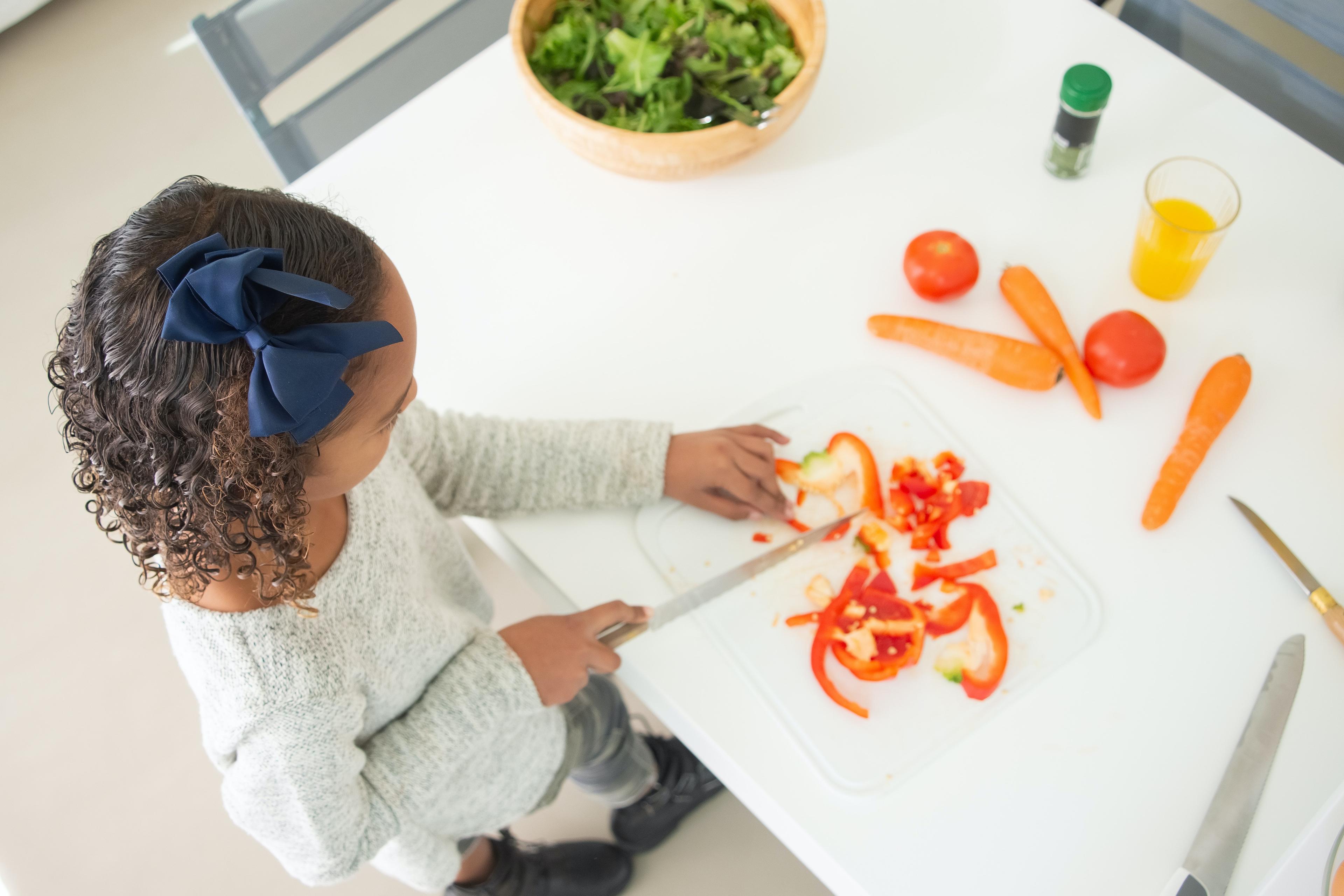


5 Dangers In The Kitchen For Children
11 August 2023
While it’s great to get your kids involved in the kitchen, it can be quite a hazardous place for them. However, with sensible precautions and age-appropriate explanations, you can significantly reduce the risk of accidents. Here are 5 of the most common dangers to watch out for.
Burning and scalding
Children have very sensitive skin and can be badly burned or scalded by kitchen accidents, in some cases scarring them for life. Ensure the handles of pans on the hob are turned so they are out of reach of kids. Keep the kettle and hot drinks well away from curious hands. You may find it’s safer to use the burners at the back as your kids get tall enough to touch the hob with their hands. Induction hobs are generally safer as they don’t get as hot and there’s no flame, however the pans they heat still become very hot. Microwaves can also make containers and their contents very hot, so take care with these. In the event of a burn or scald, hold the burned skin under a cold tap for 10-20 minutes, and seek medical attention if the burns cover a large area, blister, or cause white or charred skin.
Sharp knives
Knives are an obvious hazard in the kitchen. Keep them away from young children, and teach older children how to use them safely under supervision. Putting them in a drawer or block young children can’t reach is best, and take care not to leave them lying around after use. Be aware that other kitchen implements can contain sharp surfaces or points too, for example tin openers (and the opened tins and lids), corkscrews, vegetable peelers and cheese graters. For minor cuts, rinse it under a tap and then apply pressure to stop the bleeding and put a plaster on. If the cut continues to bleed or is deep, seek immediate medical attention.
Glassware
If not handled carefully, glasses and plates can break and cause cuts. Always use care when handling it to prevent accidents and avoid placing it on the edge of counters or tabletops. It’s best to use plastic plates and cups with young children and then once they get older, teach them how to handle glassware safely. Glassware should be stored in a cabinet or cupboard, out of reach of children. If something does get smashed, make sure nobody walks in the room without shoes on until you’ve cleaned it up thoroughly. Broken glass fragments can travel a long way and even tiny ones can cause nasty injuries, so use a vacuum cleaner to get them all up.
Small appliances
Small appliances such as blenders and food processors can be dangerous for children. They often contain sharp blades so should be kept out of reach at all times. Always unplug them when you’re not using them - most have a safety feature stopping them running without a lid, but it’s better to be safe than sorry.
Chemicals
Many cleaning products and other chemicals are stored in the kitchen and can be harmful if ingested or inhaled. Some of the most dangerous include bleach and drain unblocking liquids, which can cause chemical burns if they get on skin. To prevent accidents, always store chemicals out of the reach of children and use caution when using them around your children. If you store your cleaning products under the sink, be sure to keep the cupboard door closed and locked. Always follow the manufacturer's instructions when using them.
The kitchen is full of potential hazards for children and it's important to be aware of the dangers so you can take steps to prevent accidents. Following these simple safety tips can help keep your child safe from harm in the kitchen.
